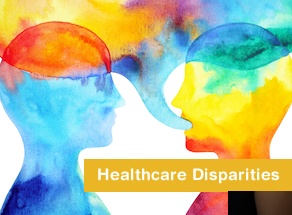Healthcare Policy
How To Diversify America’S Doctor Workforce
07/04/2021 06:00am | 2869 views
The U.S. is growing increasingly diverse. But the doctor workforce hasn't followed suit—at least, not as quickly.
That's among the findings of a recent study from researchers at the University of Pennsylvania.They conclude that there's a significant need for "more robust policies and programs to create a physician workforce that is demographically representative of the U.S. population."
Preventive Care
Early U.S. Data Indicates Black And Hispanic Americans Lagging In Covid-19 Vaccinations
01/04/2021 06:00am | 2986 views(Reuters) - Early data on U.S. coronavirus vaccinations released on Monday suggests that Blacks and Hispanics received a smaller proportion of shots than their representation among healthcare workers and nursing home residents, two priority groups for COVID-19 inoculations.
Preventive Care
Black, Hispanic Or Latinx Adults Twice As Likely To Report Worse Covid-19 Access
28/03/2021 06:00am | 3193 viewsBlack and Hispanic or Latinx individuals in the United States are twice as likely as white individuals to say their access to COVID-19 treatments, vaccines and health care is worse than other racial or ethnic groups, an online poll found.
Healthcare Policy
Latino, Black children are twice more likely to endure multiple Covid health, economic hardships
19/01/2021 06:00am | 2542 viewsLatino and Black children are two times more likely to experience three or more economic and health related hardships as a result of the Covid-19 pandemic, according to a new analysis of Census Household Pulse Survey data released Wednesday.
Mental Health
COVID 'decimated our staff' as the pandemic ravages health workers of color
19/01/2021 06:00am | 1962 viewsLast spring, New Jersey emergency room nurse Maritza Beniquez saw “wave after wave” of sick patients, each wearing a look of fear that grew increasingly familiar as the weeks wore on.




